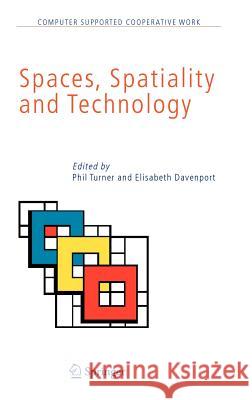Spaces, Spatiality and Technology » książka
Spaces, Spatiality and Technology
ISBN-13: 9781402032721 / Angielski / Twarda / 2005 / 306 str.
separated by the exigencies of the design life cycle into another compartment, that makes invisible the (prior) technical work of engineers that is not directly pertinent to the application work of practitioners. More recently (and notably after the work of Greisemer and Star) the black box has been opened and infrastructure has been discussed in terms of the social relations of an extended group of actors that includes developers. Ethical and political issues are involved (cf f accountable computing). Writing broadly within this context, Day (chapter 11) proposes that the concept of 'surface' can assist us to explore space as the product of 'power and the affective and expressive role for materials', rather than the background to this. Surfaces are the 'variously textured...sites for mixtures between bodies', and are thus the 'sites for events'. The notions of 'folding' and 'foldability' and 'unfolding' are discussed at length, as metaphors that account for the interactions of bodies in space across time. Some of the contributors to this volume focus on ways in which we may experience multiple infrastructures. Dix and his colleagues, for example, in chapter 12 explore a complex of models - of spatial context, of 'mixed reality boundaries' and of human spatial understanding across a number of field projects that make up the Equator project to explain the ways in which co-existing multiple spaces are experienced.











